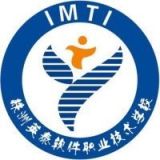营养师如何处理患者的饮食问题?

Answer:
1. Assessment and Evaluation:
- Conduct a thorough assessment of the patient's medical history, current symptoms, and overall health status.
- Determine the underlying cause of the dietary problem.
- Evaluate the patient's eating habits, preferences, and lifestyle factors.
2. Communication and Education:
- Explain the importance of a balanced and nutritious diet for overall health.
- Provide clear and specific dietary instructions, including portion sizes, frequency, and types of food to eat.
- Educate the patient on the importance of reading food labels and making informed food choices.
3. Dietary Counseling:
- Develop personalized dietary plans that address the patient's specific needs.
- Provide guidance on meal planning, cooking techniques, and food safety.
- Offer support and encouragement to help the patient stay on track with their dietary goals.
4. Meal Planning and Preparation:
- Assist the patient in meal planning and preparation to make healthy eating more enjoyable and sustainable.
- Provide recipe suggestions, cooking demonstrations, and meal ideas that align with the dietary plan.
- Encourage the patient to involve family members or caregivers in meal preparation to promote compliance.
5. Monitoring and Evaluation:
- Regularly monitor the patient's progress and adjust the dietary plan as needed.
- Track symptoms and assess any changes in the patient's health status.
- Provide feedback and support to help the patient maintain long-term dietary improvements.
6. Collaboration with Other Healthcare Professionals:
- Coordinate with other healthcare professionals, such as physicians, nutritionists, and dietitians, to ensure a comprehensive and coordinated approach to patient care.
- Provide referrals for additional support or resources as needed.
7. Patient Engagement and Empowerment:
- Encourage the patient to actively participate in their dietary management.
- Provide opportunities for self-monitoring and tracking of progress.
- Empower the patient to make informed food choices and make sustainable lifestyle changes.






























































































